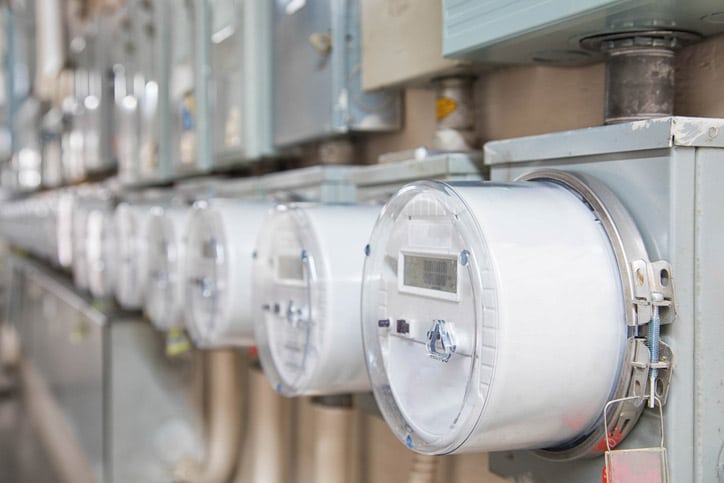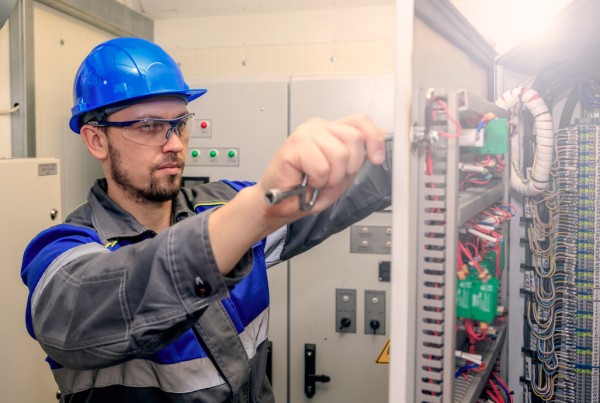A commercial energy audit is a process for evaluating the energy efficiency of a commercial building, its carbon footprint, and its progress toward green energy. This is why it’s considered a key first step towards making any commercial building more efficient.
There are many benefits of energy audits, such as identifying key energy-saving opportunities, energy losses, inefficiencies, and more. A commercial energy audit also increases asset and property values, lowers ownership and maintenance costs, and promotes better environmental practices.
This is accomplished by examining all the energy generation and consumption data for the commercial building. Here, we will look at what an energy audit entails, how it can benefit your business, and ultimately help you answer the question of whether or not you need an audit.
What Does A Commercial Energy Audit Consists of?
Broadly speaking, a commercial energy audit examines all factors that may affect how much energy is being consumed and/or generated by your business. Here is an overview of the process itself:
- Utility bill analysis. This includes:
- Utility service feeds (electrical systems and gas)
- Areas and processes where each utility is used most
- Building’s ability to remain sustainable without said utilities
- Average load factors
- Billing rate schedules
- On-site survey. The systems surveyed include:
- Lighting
- Heating/cooling
- Plug/industrial/process loads
- Building envelope/carbon footprint
- Other energy-using systems
- Data collection and performance analysis, including runtime for
- Current building management system data
- Current building equipment
- Equipment temperature, pressure, flow, humidity sensors, and other key elements
- Electric power and thermal consumption and production data
- Trend analysis and performance curve
- Reviewing as-built construction drawings
- Reviewing building carbon footprint and what can be done to reduce it.
- Interviewing managers and other staff for:
- Determining hours of operation
- Determining any positions needing to be filled
- Determining other areas of opportunity and concerns
- Examining existing energy controls and operating schedules
- Testing the facility and making the final recommendation. Tests include:
- Smoke pencil test
- Infrared camera test
- Building envelope testing
- Insulation inspection
- Duct inspection
- Airflow testing
- Air handle energy usage
- Refrigerant levels
- Central heating system performance
- Ventilation system performance
- Exhaust flow measurement
- Combustion efficiency
- CO2 testing
- CO testing
- Equipment energy draw
All of this data is crucial in helping make informed decisions regarding the energy efficiency of your business.
Is a Commercial Energy Audit Worth It?
Once the data is collected, it needs to be put to good use; otherwise, the energy audit doesn’t have much value. There are several benefits from a commercial energy audit your business can enjoy with the right advice and expert electricians backing you up.
Skyline Electric has helped clients in the following ways by analyzing their audit reports to help them strengthen their bottom-line.
- Lighting retrofits
- Introduction of variable speed drives
- Implementing improved control systems
- Retro-commissioning
- Implementation and improvements for commercial solar systems
- Implementing daylighting controls
- Replacement and repair of HVAC units
- Replacement and repair of chillers and boilers
- Complete wiring analysis
- Complete rewiring for better control
- ENERGY STAR compliance
There is little doubt that commercial energy audits pay off in the medium and long term, and help your business continue to make sound decisions. You can also use the audit reports to craft a better public image for your business, which can often open new doors for you.
Let Skyline Electric help you make the most out of your commercial energy audit today by helping you make informed sustainable decisions. Call or contact us to schedule a strategy session, and let’s make your business more efficient today!




